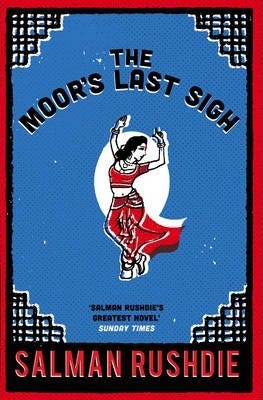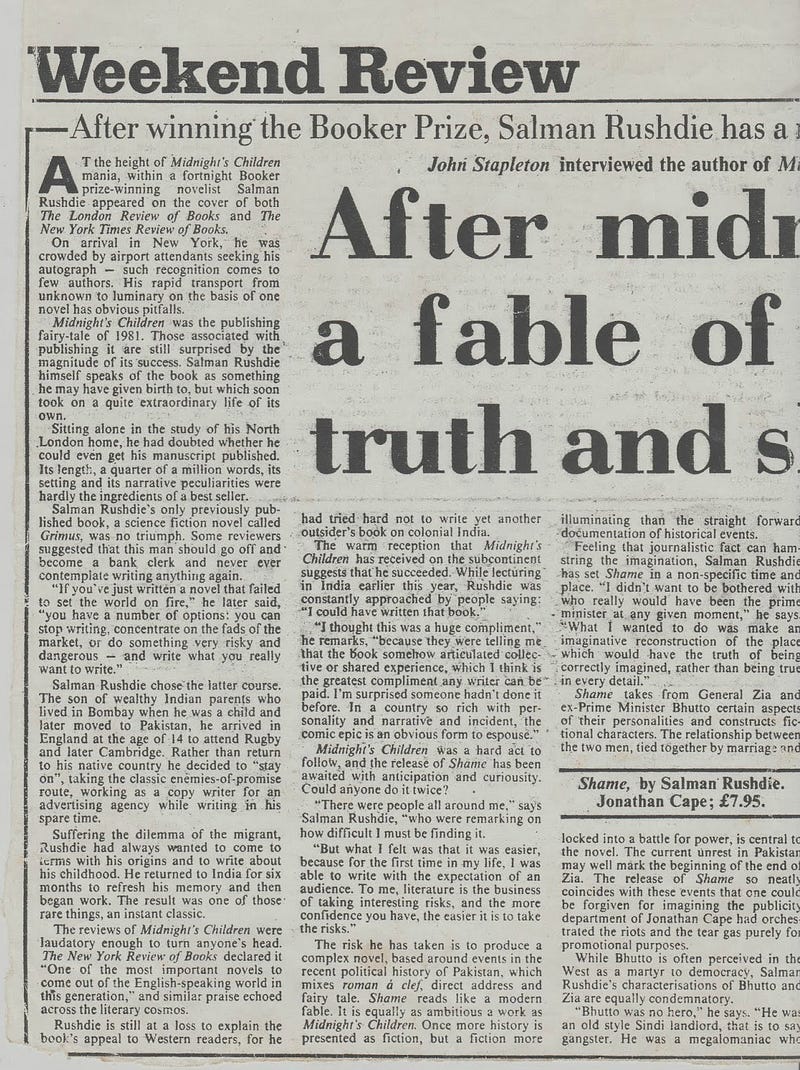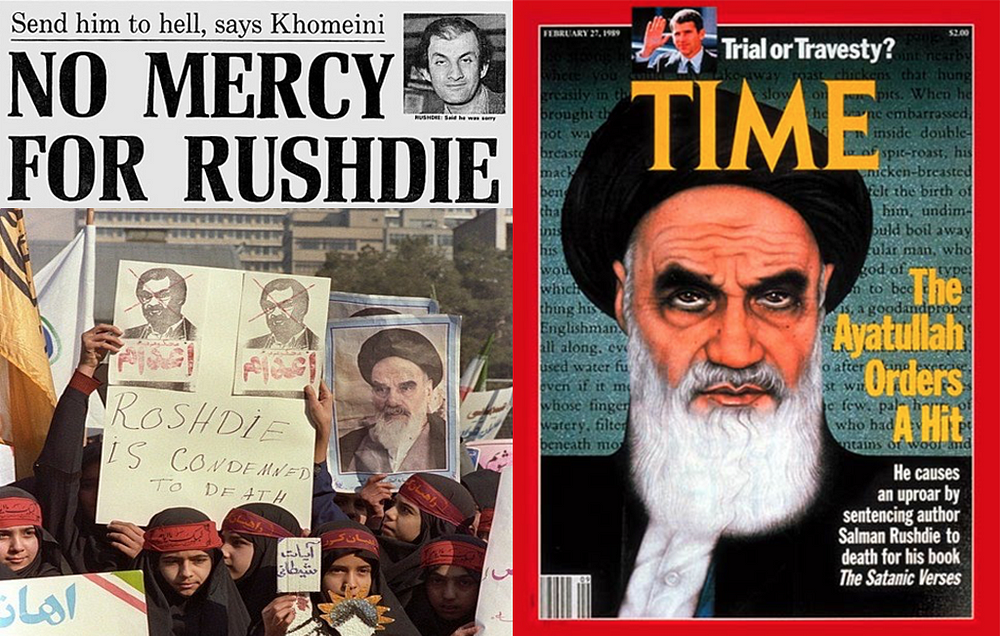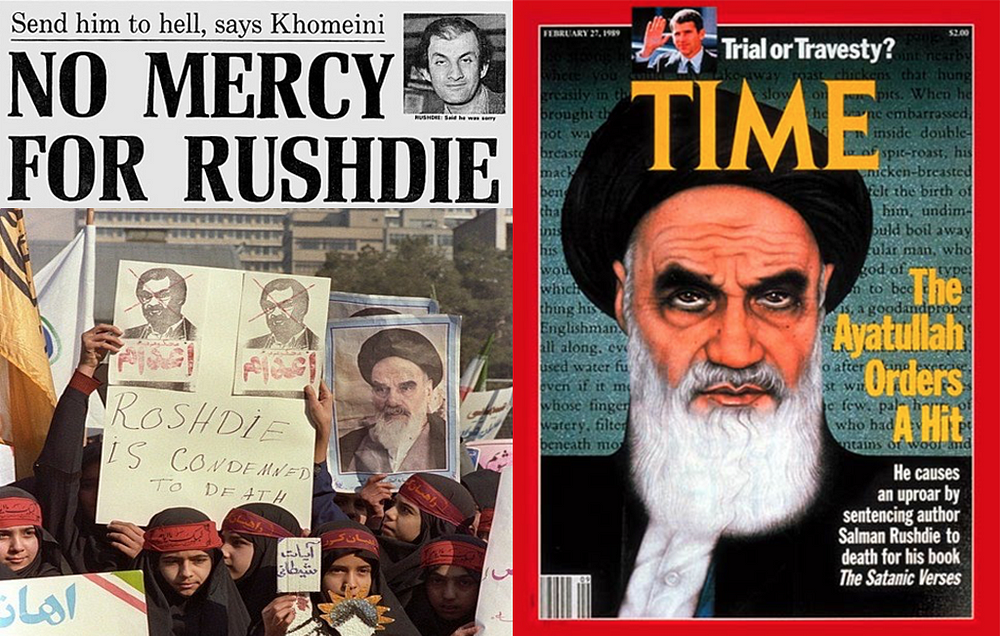
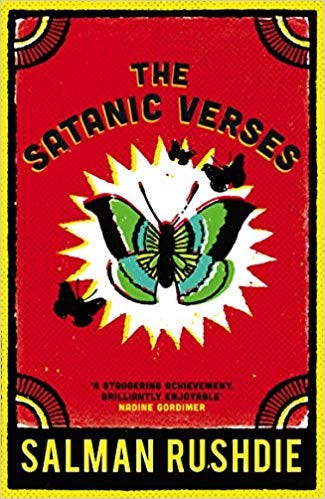
And yes, even Salman Rushdie had product to sell — Shame.
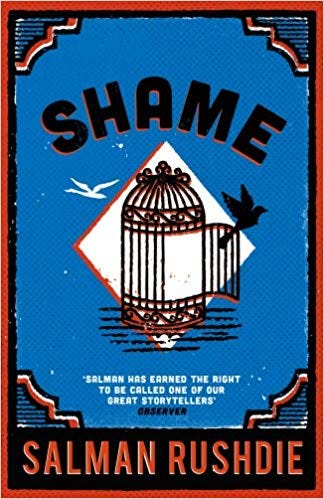
The Multiple Voices of Midnight’s Children
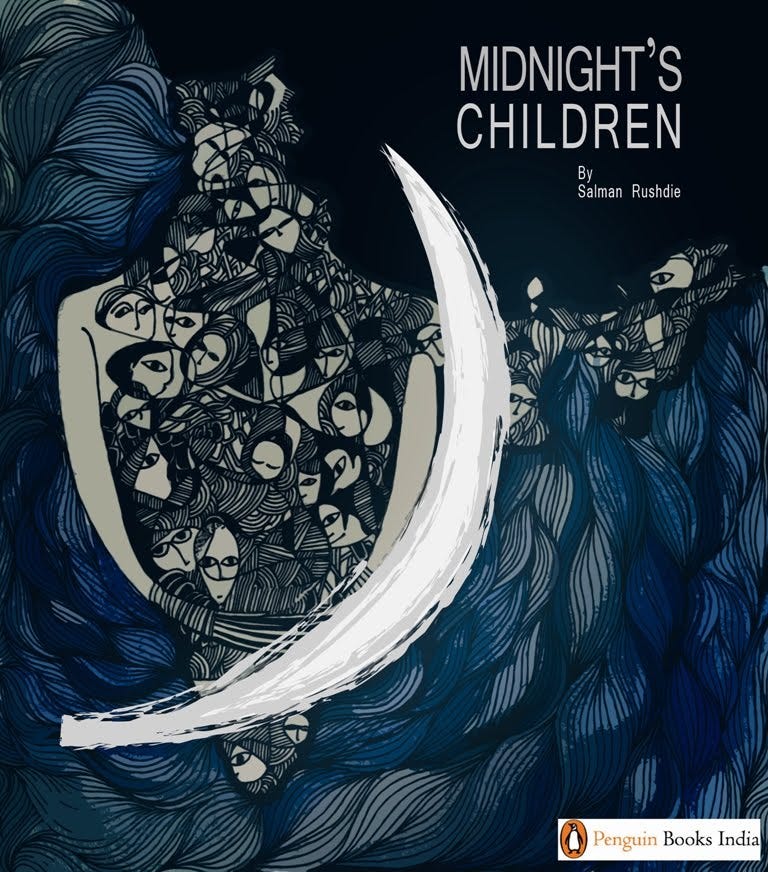
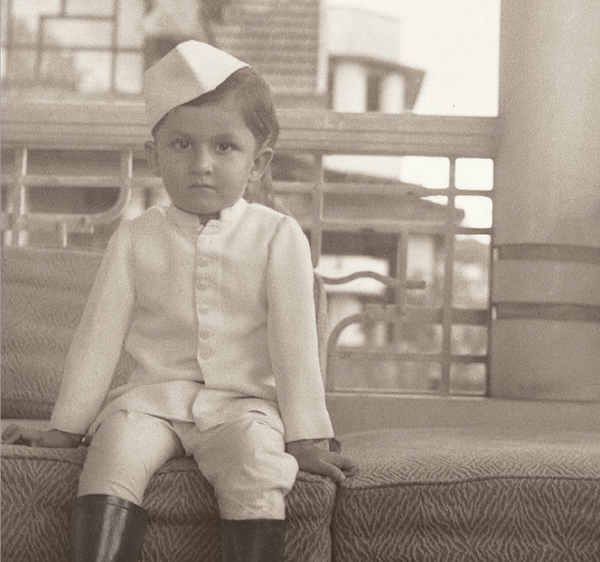
I was born in the city of Bombay. . .once upon a time. No, that won’t do, there’s no getting away from the date: I was born in Doctor Narlikar’s Nursing home on August 15th, 1947. And the time? The time matters, too. Well then: at night. No it’s important to be more. . . On the stroke of midnight, as a matter of fact. Clock-hands joined palms in respectful greeting as I came. Oh, spell it out, spell it out: at the precise instant of India’s arrival at independence, I stumbled forth into the world. There were gasps and outside the window fireworks and crowds. A few seconds later, my father broke his big toe; but his accident was a mere trifle when set beside what had befallen me in that benighted moment, because thanks to the occult tyrannies of those blandly saluting clocks I had been mysteriously handcuffed to history, my destinies indissolubly chained to those of my country. For the next three decades, there was to be no escape. Soothsayers had prophesied me, newspapers celebrated my arrival, politicos ratified my authenticity. I was left entirely without a say in the matter. I, Saleem Sinai, later variously called Snotnose, Stainface, Baldy, Sniffer, Buddha and even Piece-of-the Moon, had become heavily embroiled in Fate — at the best of times a dangerous sort of involvement. And I couldn’t even wipe my own nose at the time.
Rushdie At Home
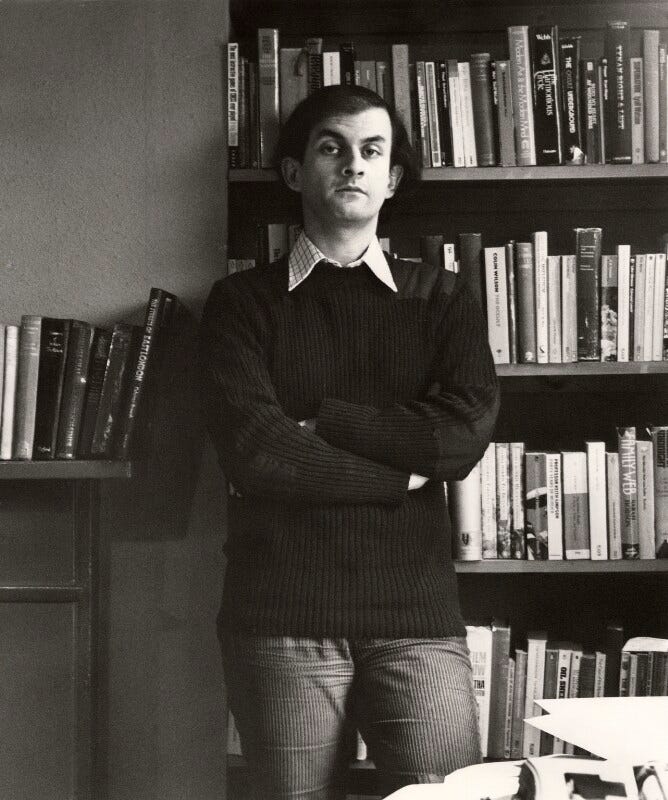
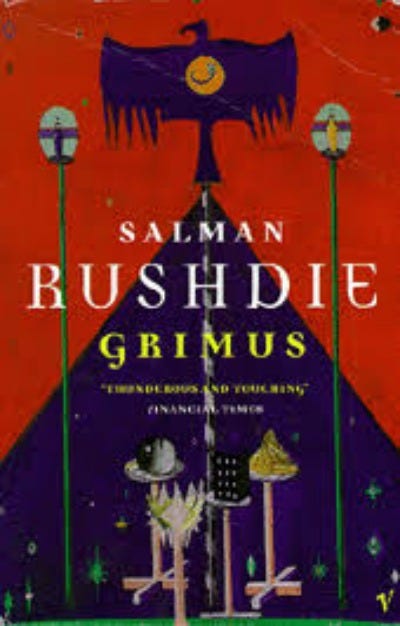
The Phenomenal Crowds of India
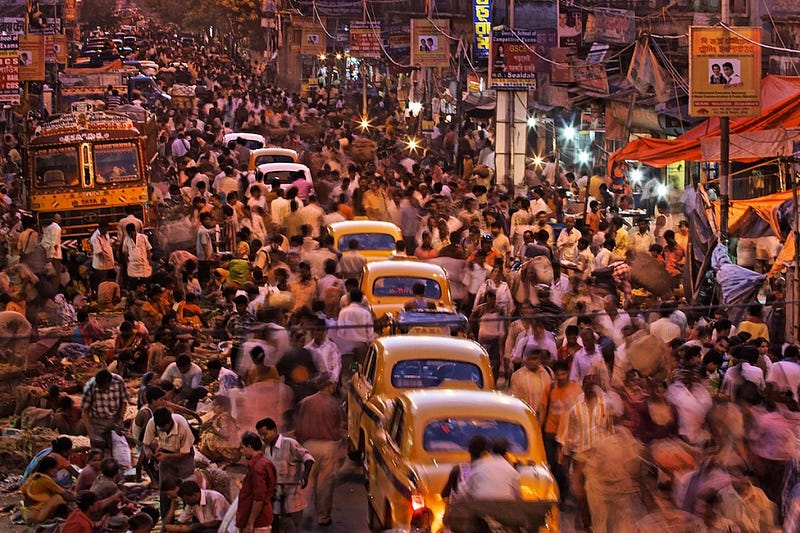
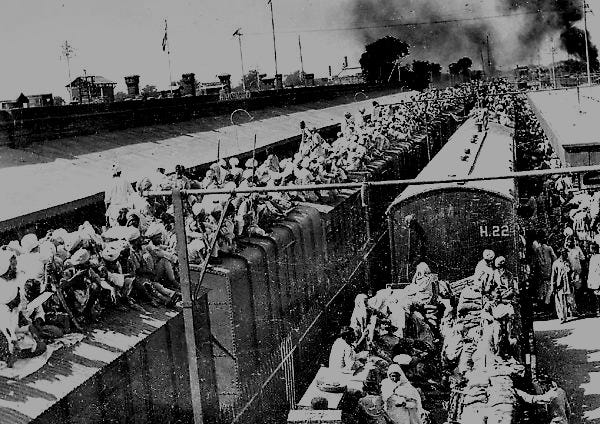
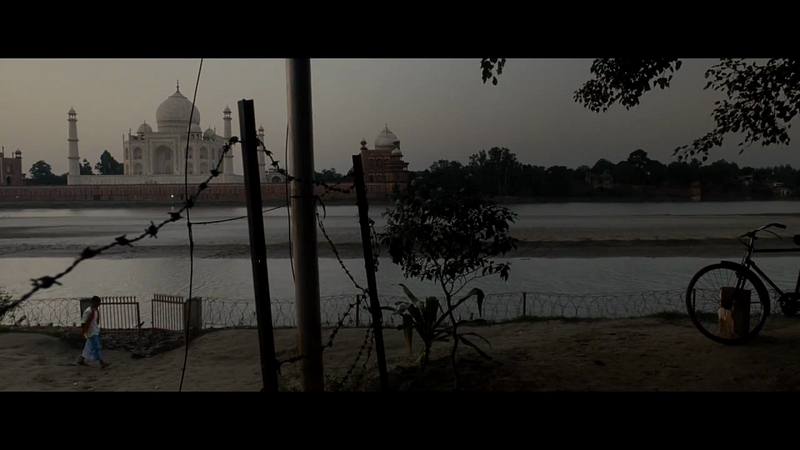
There were people all around me who were reminding me how difficult I must be finding it. But what I felt was that it was easier, because for the first time in my life, I was able to write with the expectation of an audience.
To me, literature is the business of taking interesting risks, and the more confidence you have, the easier it is to take risks.
So Much Was To Follow
